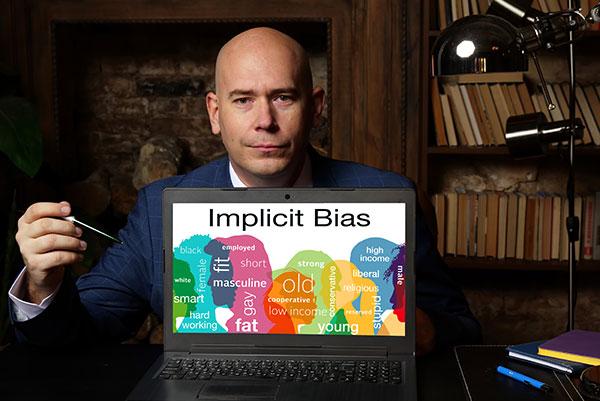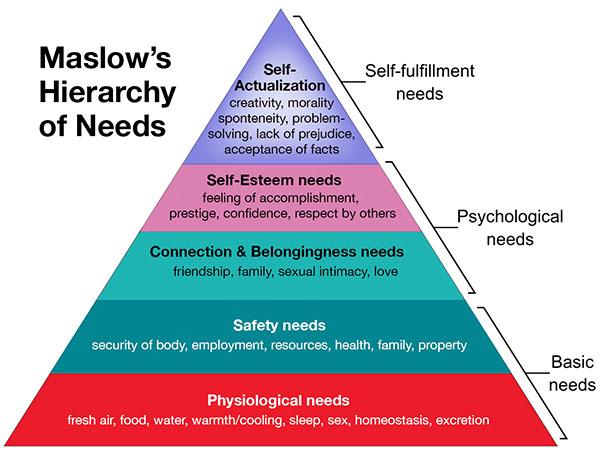
Implicit bias is a psychological term that attempts to describe the unconscious prejudices and stereotypes that we form without conscious awareness. It is human nature to have these unknown biases, whether we want to admit it or not.
Many family lawyers would vehemently argue that they are not biased in any way, but they would be wrong.
Biases are formed through our education, experience, culture, and history. It is generally recognized that our minds form biases based on unconscious associations over time, either intentionally or unintentionally. Ironically, the more intelligent you are, the higher the likelihood that you have implicit bias.
Various studies have identified implicit bias in the legal world as it relates to:
- Hiring, promotion, pay, and responsibilities as these concepts are affected by gender, race, religion, appearance, age, disability, and sexual orientation,
- Jury selection,
- Client representation, and
- Relationships.
Our minds are like icebergs: our conscious awareness [is] the 10% above the surface of the water, and our unconscious [is] the 90% of the iceberg beneath the surface.

Science explains that our minds are like icebergs, with our conscious awareness represented by the 10% of the iceberg above the surface of the water, and our unconscious represented by the 90% of the iceberg beneath the surface of the water. We are not aware of the 90% of our mind that is unconscious (by definition).
There is a test available online known as the Implicit Association Test (IAT), which was developed by psychologist Tony Greenwald, Ph.D., that has torn the cover off implicit bias. It demonstrates that our concepts of “good/bad”, “right/wrong” and “like/dislike” are the result of implicit bias and no one is free from bias.
As we become more and more familiar with the fact that a large part of our minds is unknown to us, we become more aware of the indirect effects of our unconscious on our conscious minds.
More specifically, when the conscious mind conflicts with our unconscious mind, the higher the chances are we have anxiety, stress, and ultimately, burnout. For example, if we consciously seek success, but unconsciously believe that we don’t deserve it, we become stressed.
What does this have to do with attorney burnout?
In coaching individuals who are experiencing burnout, stress, anxiety, or depression, I often find that there are unconscious traumas, beliefs, decisions, emotions, or thoughts that conflict with their goals, work, expectations, and dreams. Will power and determination only make the conflict worse.
Like struggling in quicksand, white knuckles and clenched jaws only serve to make the struggle with hidden blocks more intense and lethal. Clients describe the effect metaphorically as like driving a car with one foot fully on the gas pedal and the other fully on the brake pedal.
They feel like their wheels are spinning and yet they are not going anywhere. They feel stuck.
5 Steps to Discovering Your Implicit Bias
As well as taking the Implicit Association Test (or IAT, which is free online), there are numerous ways to discover implicit bias. Here are five:
- Make a chart of personal likes and dislikes. How you decide which column to put items is probably a result of implicit bias.
- Make a list of what you believe. Then ask yourself “why do I believe that? When did I decide that was true? What if it wasn’t true?”
- List the negative emotions that you experience daily – whether it is fear, sadness, anger, guilt, shame, terror, depression, rage, hate, jealousy, lust, or disgust. Then list what you were thinking immediately before you felt the emotion. That thought probably was the conscious manifestation of an implicit bias.
- When you consider what you don’t like about your life, identify what beliefs you would have to replace to change your life. Any resistance to changing your beliefs would come from implicit bias.
- Look at what you want in life and consider these are based on implicit bias. Even Maslow’s “Hierarchy of Needs” (from the bottom up: Physiological, Safety, Connection, Self-Esteem, and Self-Actualization) is based on implicit bias.

The neuroscience behind implicit bias confirms that the unconscious has a great deal to do with our conscious experience of reality. Thus, the proposition that healing or releasing unconscious negative memories, decisions, beliefs, and traumas can greatly improve your experience is real.
Family Lawyers: 10 Common Unconscious Biases
Here are some common hidden unconscious biases (decisions) I often encounter in family lawyers:
- I am a fraud.
- I don’t deserve to succeed.
- I am a victim.
- Work/life is hard.
- You must work hard and sacrifice to be successful.
- Relationships are painful.
- Making it to the top is for other people.
- Other people are lucky, not me.
- I am not good enough.
- I am ashamed.
If you say these things to yourself, notice your body’s reaction to the statement. Does it feel like the truth, or is it a lie? The problem is your conscious mind can’t tell you. You can only discern the effects of these biases through behavior and physical and emotional symptoms.
When Implicit Bias Conflicts with Conscious Desire
If you are exhibiting the symptoms of stress (mental and physical exhaustion, decreasing performance, negative emotions like blame, shame, guilt, or despair) you may have implicit biases that are conflicting with your conscious desires.
Another way of detecting implicit bias is how you perceive the world. The world reflects your inner thoughts, emotions, and beliefs. In other words, you see what you look for and we are always looking for evidence that our beliefs are correct.
If you believe that you are not good enough, you will focus on evidence that you don’t measure up even though your belief is incorrect. You will unconsciously associate with people who will confirm that you are defective.
Once we become aware of our implicit bias, we can decide to change. Until we are aware, we are like puppets being controlled by these biases. Change is possible given proper coaching and training the unconscious mind.
Finding your implicit biases is the key.
Related Content
Avoiding Self-Sabotage and Attorney Burnout
The road to attorney burnout is the same road as the road to success; the difference is your attitude and perspective.
Challenging Retention Bias and Adversarial Allegiance in Expert Testimony
Can you overcome retention bias and adversarial allegiance during cross-examination? One family lawyer offers advice based on 50 years of trial experience.
5 Signs You are Suffering from Legal Fatigue/PTSD During COVID
COVID-19, political & social unrest, job stress, & coping with traumatized clients are creating a perfect storm of legal fatigue/PTSD in lawyers.






